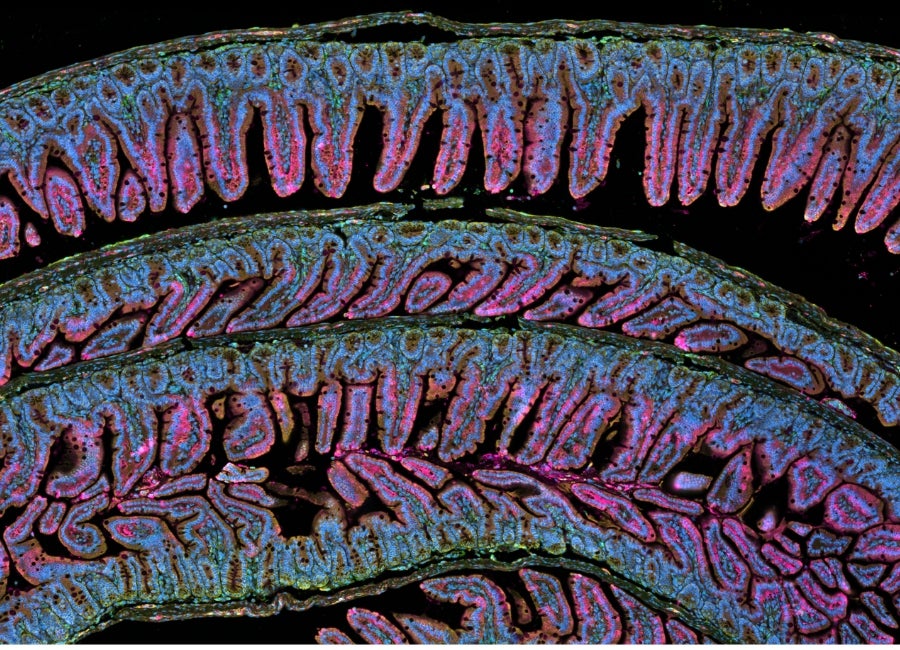
Institute for Infectious & Zoonotic Diseases
More than three-quarters of emerging infectious diseases affecting humans are zoonotic. Over the past two decades, the world has witnessed outbreaks of avian influenza, mpox, Zika, West Nile virus, and SARS-CoV-2, among others. Meanwhile, longstanding infections such as malaria and dengue remain persistent global threats.
At the same time, the rise of antibiotic resistance poses a critical public health challenge. As resistance spreads and zoonotic pathogens continue to emerge and re-emerge at an alarming pace, coordinated research and response efforts across human, animal, and environmental health are more urgent than ever.
our mission
IIZD is Penn Vet’s One Health response to the rising threat of zoonotic diseases – locally and globally. Our mission is to confront the next zoonotic outbreak by fostering cross-campus collaboration, driving scientific innovation, and strengthening the infrastructure of one of the nation’s largest zoonotic disease programs.

Why Penn Vet
We have one of the largest zoonotic disease programs in the nation, rooted in our extensive faculty network and distinctive geography. Penn Vet’s Philadelphia campus neighbors the University of Pennsylvania’s twelve schools, including the medical and nursing schools, while our New Bolton Center campus is in a region densely populated with dairy farms and agriculture.
This unique topography brings Penn’s scientists together with incredible resources, spurring cross-disciplinary collaboration to tackle monumental challenges, from chronic and fatal diseases to biosecurity, antimicrobial stewardship, and the impacts of climate change.
Penn Vet is also a trusted partner to industry and government, working closely with the Pennsylvania Department of Agriculture, the Pennsylvania Game Commission, the Pennsylvania Animal Diagnostic Laboratory System, and leading regional and national laboratory networks and health organizations.
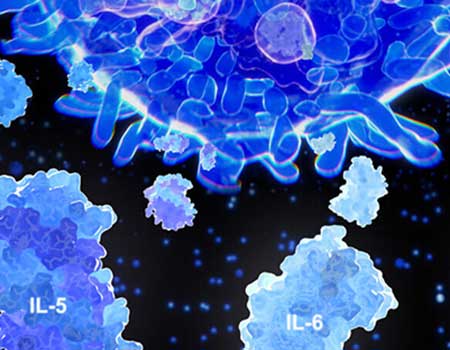

DIRECTOR, Institute for Infectious & Zoonotic Diseases
Christopher A. Hunter, PhD
Mindy Halikman Heyer Distinguished Professor of Pathobiology
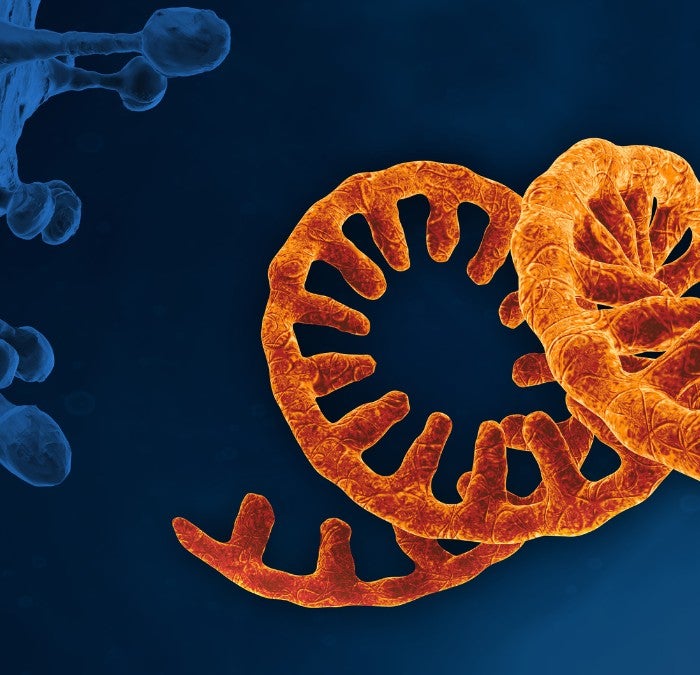
Research focus
mRNA Initiative
Penn Vet’s mRNA Research Initiative will fast-track the development of veterinary mRNA-based vaccines and host-directed therapies.
Scientific findings from these basic studies will inform the project’s goal to develop veterinary vaccines, including a vaccine for avian influenza in poultry, and a vaccine for viral infections in swine.
researcH Resource
Center for Host-Microbial Interactions
The Center for Host-Microbial Interactions (CHMI), based at the Institute for Infectious and Zoonotic Diseases at Penn Vet, is a shared resource for high-throughput sequencing and data analysis. Our center focuses on the role of the microbial world in shaping the health of humans, animals, and the environment. We collaborate closely with researchers, veterinarians, and clinicians across Penn and beyond.

research focus
CREATE
Carbapenem-Resistant Enterobacterales (CRE) are among the greatest threats to animal and human health, as they are often nearly impossible to treat with antibiotics. CRE can spread silently through veterinary hospitals, establishing environmental reservoirs and potentially transmitting to animals and people. The CRE Animal Testing and Epidemiology (CREATE) Project is a resource for veterinarians, veterinary hospital administrators, and veterinary laboratories to support preparedness, response, and accurate detection of CRE.
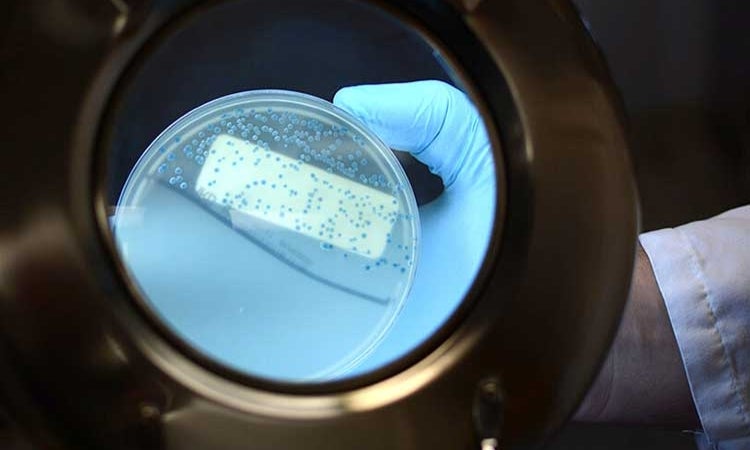
Learn More

Funding Opportunities

Events
Recent News
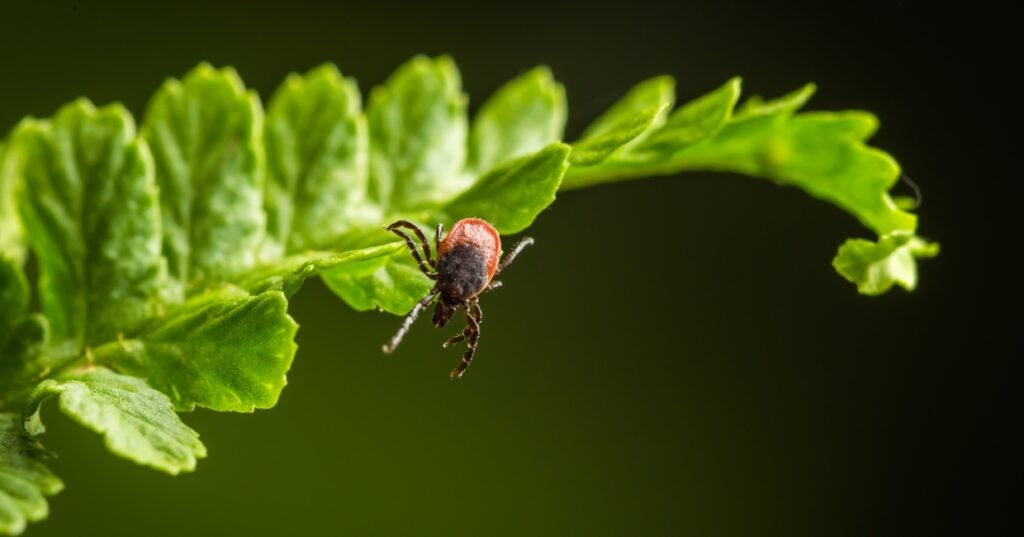
A Pennsylvania study of deer and ticks at the University of Pennsylvania School of Veterinary Medicine could shape public health and safety across the Commonwealth
Researchers at the University of Pennsylvania’s School of Veterinary Medicine (Penn Vet), in collaboration with the Pennsylvania Game Commission, are studying the complex interactions between ticks, pathogens, hosts, and their…

Improving T-cell responses to vaccines (link is external)
Penn Vet and Penn Medicine researchers have modified mRNA vaccines to include the cytokine IL-12 and improve T-cell responses which could improve the body’s ability to fight infections.

A new study from Penn Vet on germ cell gene regulatory networks paves way to determine cause of cryopreservation fertility failures
A study published in Stem Cell Reports, led by Eoin Whelan, PhD, and Ralph Brinster, VMD, PhD, and a team of researchers at the University of Pennsylvania’s School of Veterinary…
Support IIZD
With your support, we can accelerate the development of new diagnostics, treatments, and prevention strategies for infectious diseases that impact animals and people.

